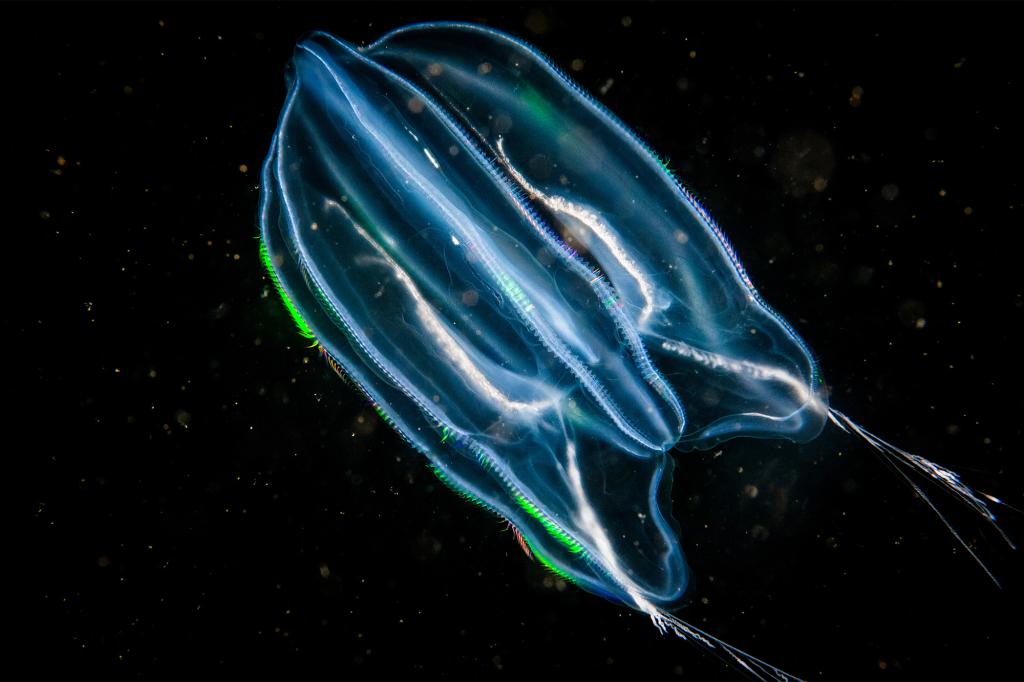Breakthrough in Aging Reversal: Comb Jellyfish Joins the 'Forever Young Club'

Bergen, Norway - Scientists have made a startling discovery in the field of aging, revealing that the comb jellyfish (Mnemiopsis leidyi) has the ability to reverse its biological clock, effectively aging backwards. This phenomenon, previously thought exclusive to the immortal jellyfish (Turritopsis dohrnii), adds a new dimension to our understanding of life cycles in the animal kingdom.
Researchers at the University of Bergen were conducting routine observations when they noticed a larval ctenophore, or comb jellyfish, in a tank where only a mature specimen was expected. This unexpected finding led to a series of experiments aimed at understanding the conditions under which this rejuvenation occurs.
Joan J. Soto-Angel, co-author of the study published in the Proceedings of the National Academy of Sciences, commented on the significance of their discovery. "The work challenges our understanding of early animal development and body plans, opening new avenues for the study of life cycle plasticity and rejuvenation," Soto-Angel stated.
The team identified extreme stress as a trigger for the comb jellyfish's reversal to its larval state. "Over several weeks, they not only reshaped their morphological features but also exhibited completely different feeding behaviors, typical of a cydippid larva," Soto-Angel explained, highlighting the dramatic transformation observed.
Paul Burkhardt, another co-author, expressed enthusiasm about the implications of their findings. "This is a very exciting time for us. This fascinating finding will open the door for many important discoveries. It will be particularly interesting to reveal the molecular mechanisms driving reverse development, and what happens to the animal’s nerve net during this process," Burkhardt said.
This discovery not only reshapes our knowledge of evolutionary biology but also fuels speculation about the potential applications in human aging research. The comb jellyfish, believed to be one of the earliest animals to evolve around 700 million years ago, might hold clues to longevity and regeneration that could be applicable to other species, including humans.
The study raises intriguing questions about how widespread this ability to reverse age might be across different animal species. "The fact that we have found a new species that uses this peculiar 'time-travel machine' raises fascinating questions about how spread this capacity is across the animal tree of life," Soto-Angel added.
As research progresses, scientists hope to unlock the secrets behind this natural form of rejuvenation, potentially leading to breakthroughs in regenerative medicine and anti-aging therapies. The comb jellyfish, with its ancient lineage and newfound ability, continues to amaze and inspire the scientific community, promising a future where aging might not be as irreversible as once thought.
